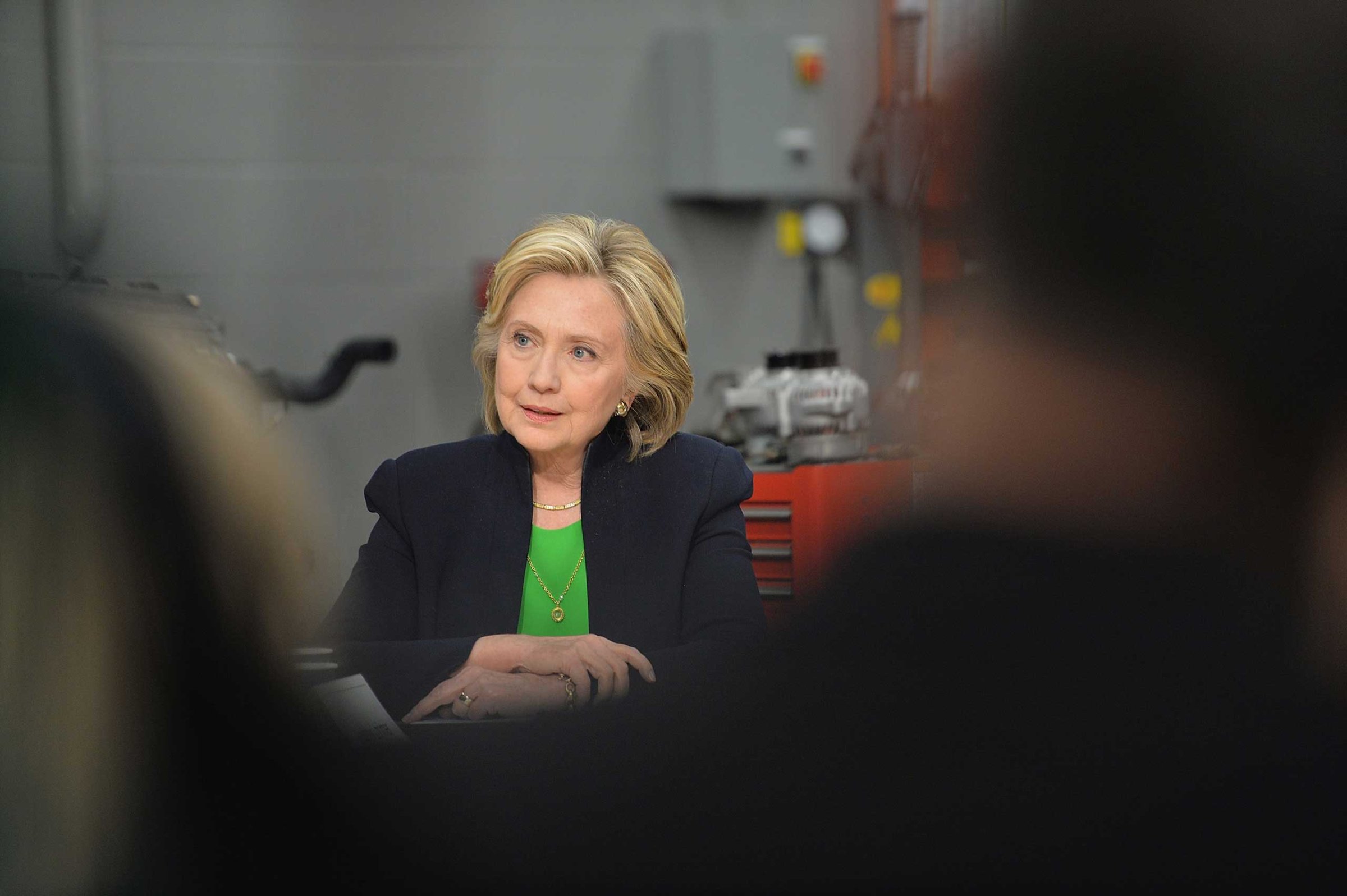
During her first bid for president, Hillary Clinton was attacked for supporting the Iraq War and being too cozy with Wall Street. She flew in a helicopter between events in Iowa and mostly appeared at massive rallies, where her distance from voters was in plain sight.
And in June 2008, the nomination went to then-Sen. Barack Obama, a candidate viewed by many Democrats as more liberal and populist.
As she began her second campaign for the Democratic nomination, there are signs that Clinton will not let the same mistake happen twice. Rather than beginning with a big speech, Clinton embarked on a low-key road trip to Iowa, where she met voters in intimate groups and hit all the notes in the populist songbook.
She criticized Wall Street and called for reducing the influence of money in politics. She endorsed expanded pre-kindergarten programs, expansive immigration reform and gay rights, and she decried income inequality and economic barriers to everyday Americans.
“There is something wrong when hedge fund managers pay lower tax rates than nurses, or the truckers that I saw on I-80 as I was driving here,” Clinton said in Monticello, Iowa, on Tuesday. “We have to figure out in this country how to get back on the right track.”
Clinton’s rhetoric signals a leftward turn for the 67-year-old candidate. Rather than run her campaign as an experienced moderate, as she did eight years ago, Clinton is flexing her liberal credentials and reaching out to the Democratic Party’s restive progressive base.
She is also protecting her left flank. Clinton is already being questioned by potential opponents and progressive groups who hope Massachusetts Sen. Elizabeth Warren would run for president. By appealing to progressives, she hopes to snuff out a spark of opposition before it can catch fire.
“If she doesn’t move to the left and really convince us she’s going to be a little more progressive, she cannot win the caucus in Iowa,” Democratic Party chair of Cedar County, Larry Hodgden said last week before Clinton’s inaugural campaign tour.
Former Maryland Gov. Martin O’Malley has emerged as one of the most vocal likely opponents to Clinton, traveling extensively in Iowa and New Hampshire with a not-so-subtle message for Democrats in those states: I’m the true progressive.
MORE: Hillary Clinton begins Campaign Her Way in Iowa
O’Malley criticized Clinton’s recent shifts on immigration and gay marriage at an appearance Thursday at Harvard University.
“I’m glad Secretary Clinton’s come around to the right positions on these issues,” said O’Malley. “I believe that we are best as a party when we lead with our principles and not according to the polls.”
Meanwhile, Clinton plans to hire a former federal financial regulatory with a record of strong oversight, Gary Gensler, as the chief financial officer of her campaign, Bloomberg reported yesterday. And this week she brought on three policy advisors this week, including Maya Harris of the Center for American Progress, a liberal think tank.
She said week she supports a proposal by President Obama for free community college tuition, and said she would be in favor of a constitutional amendment on campaign finance reform.
If Clinton’s aim in her first week was win over liberal groups, she appears to have a good start.
See Hillary Clinton's Evolution in 20 Photos

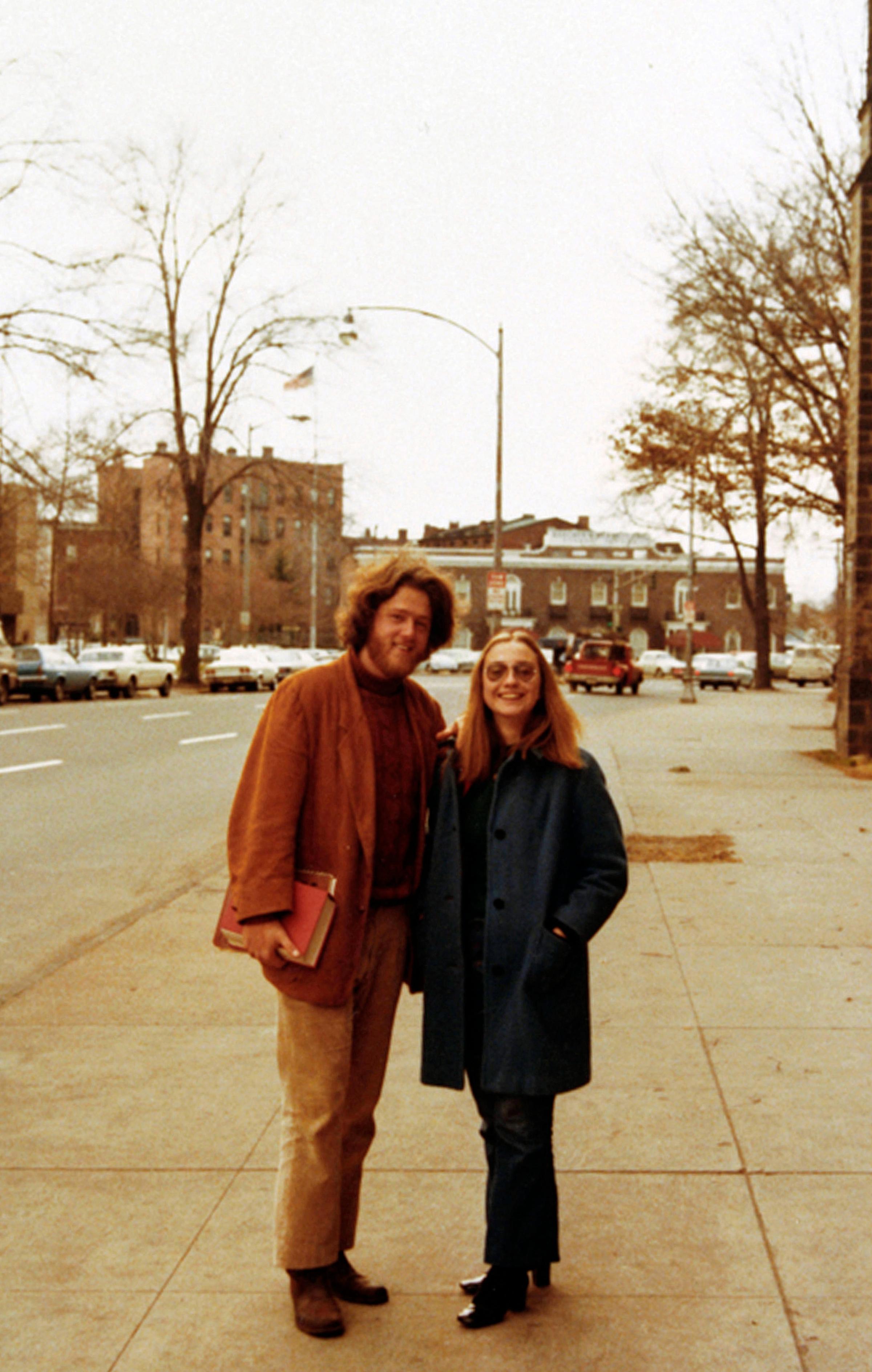
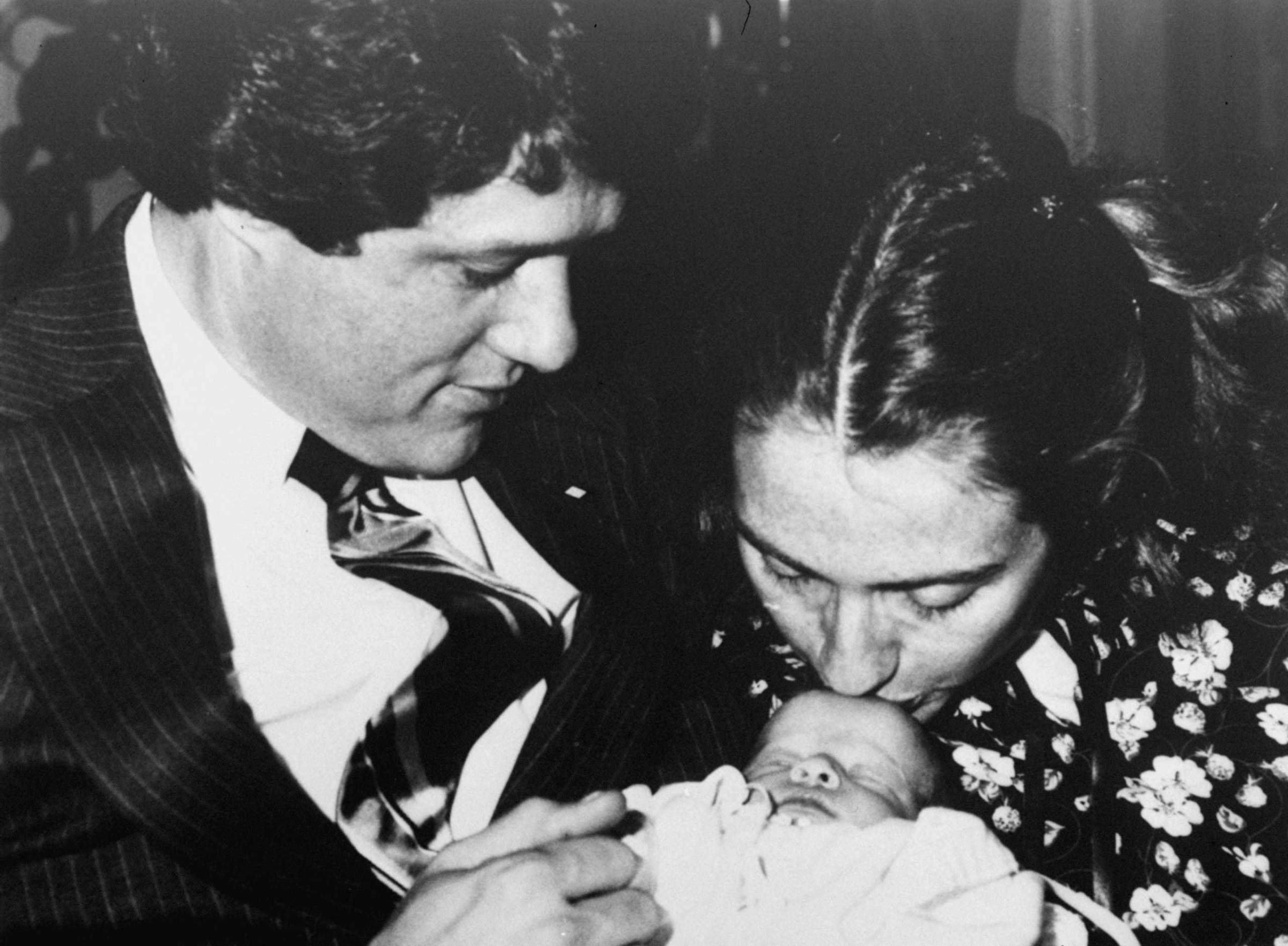

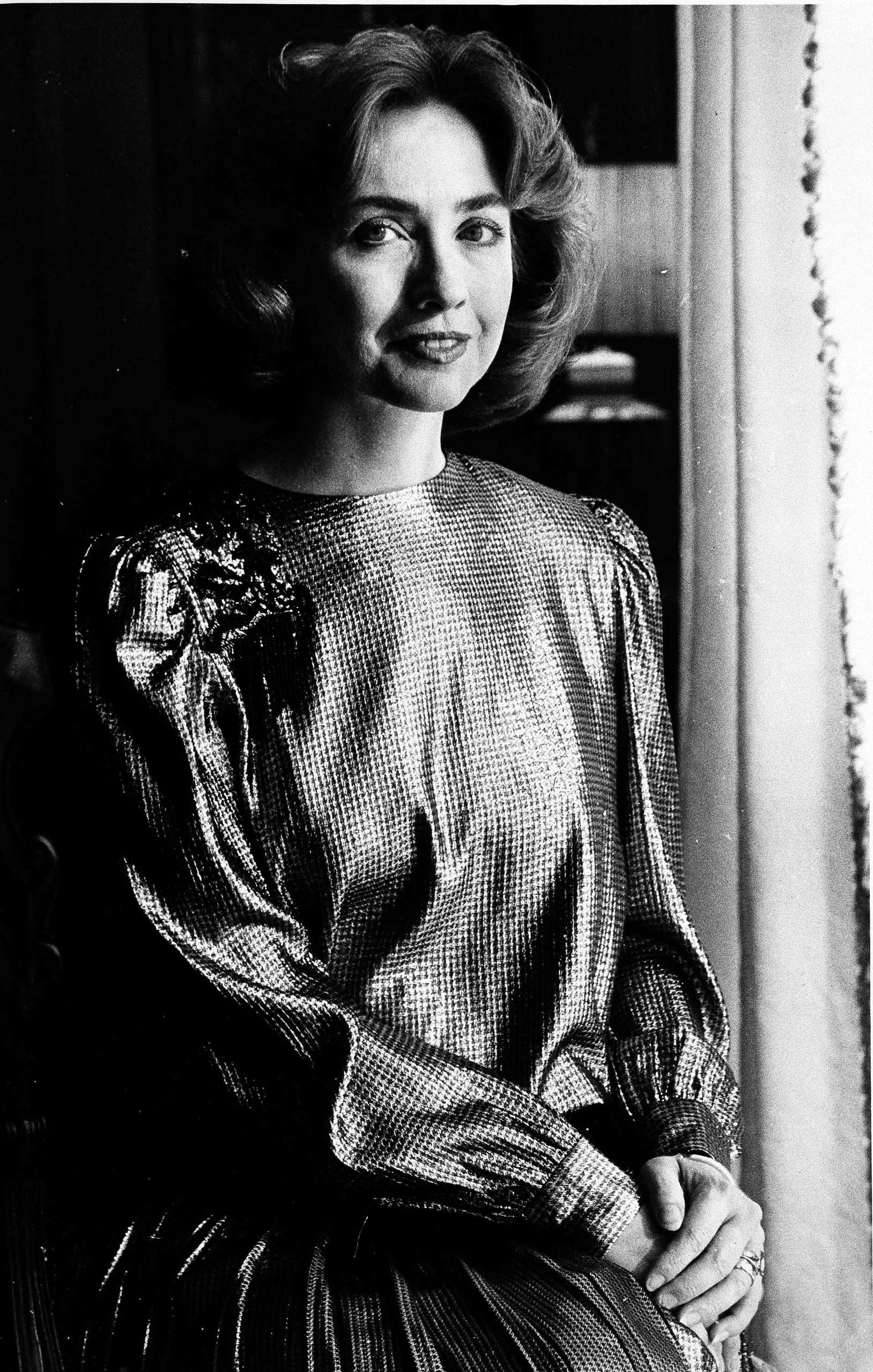
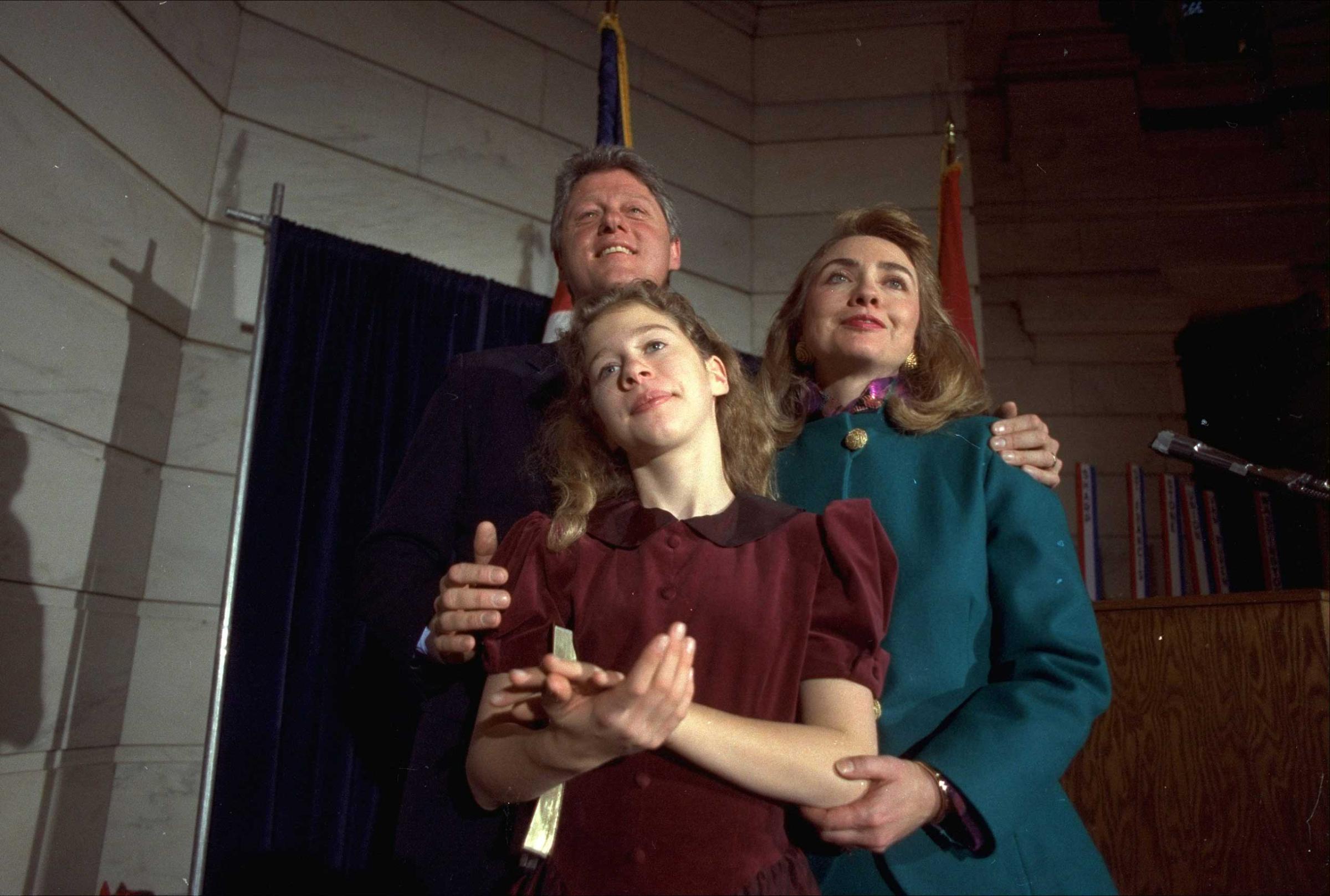

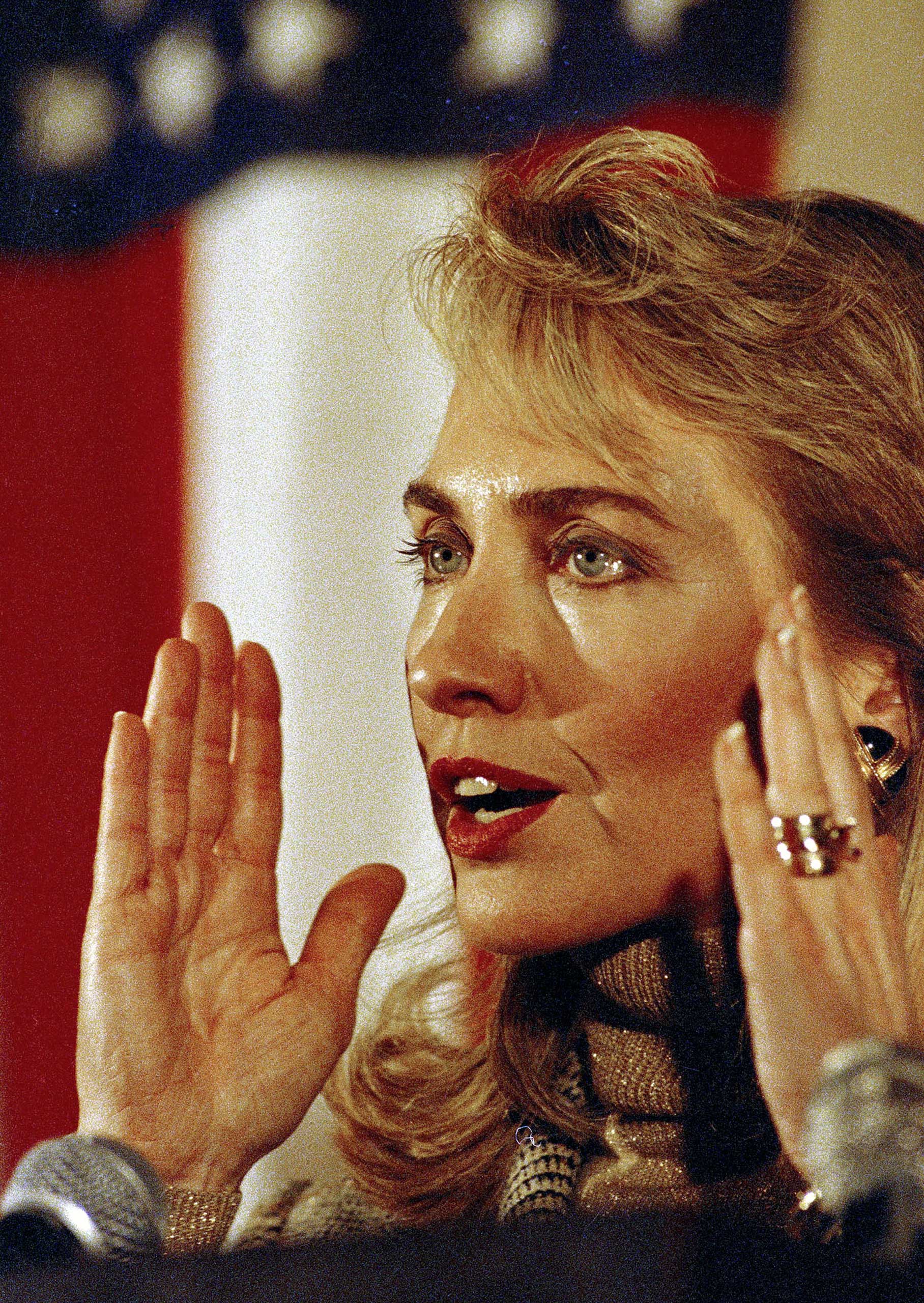

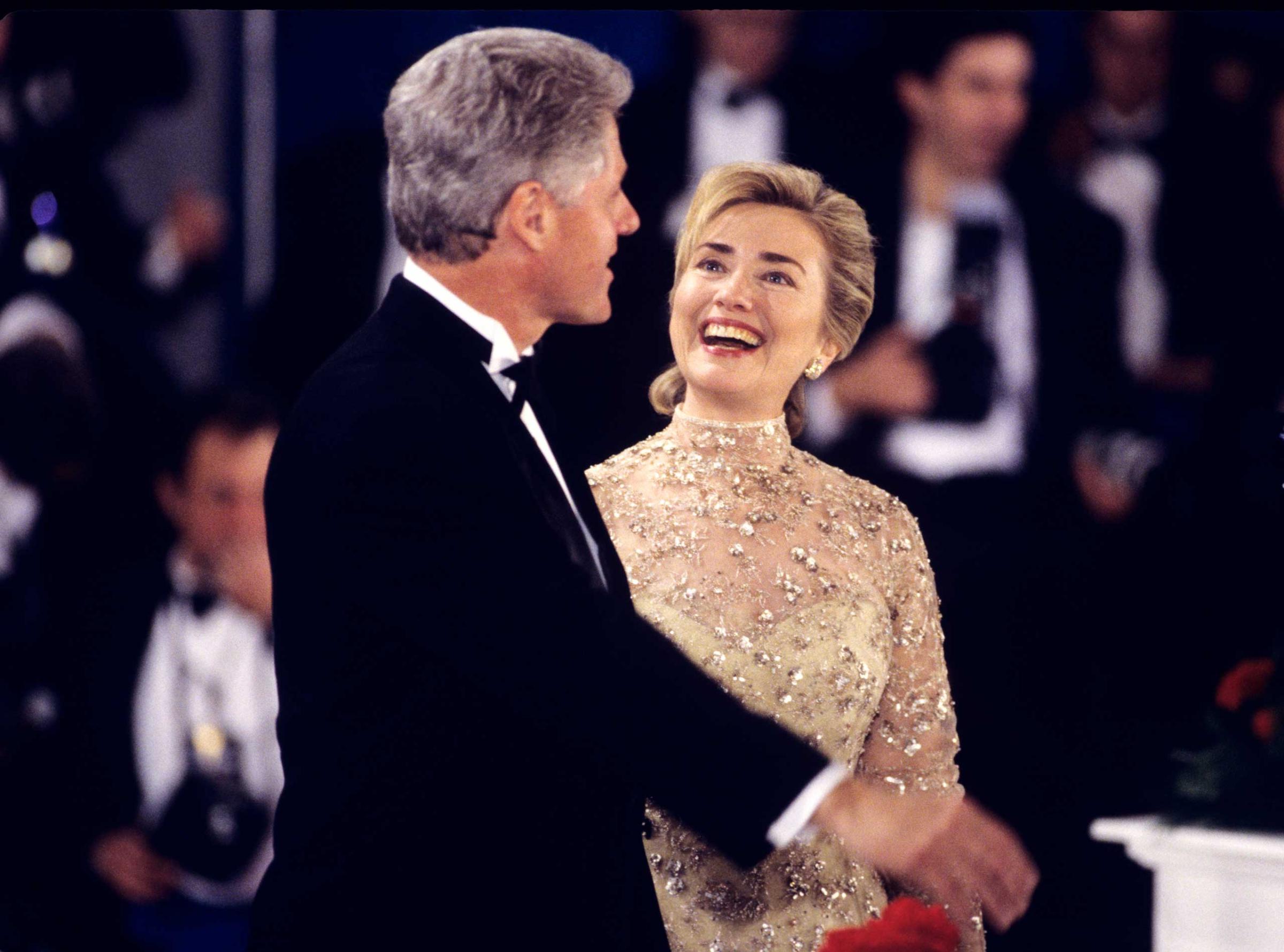
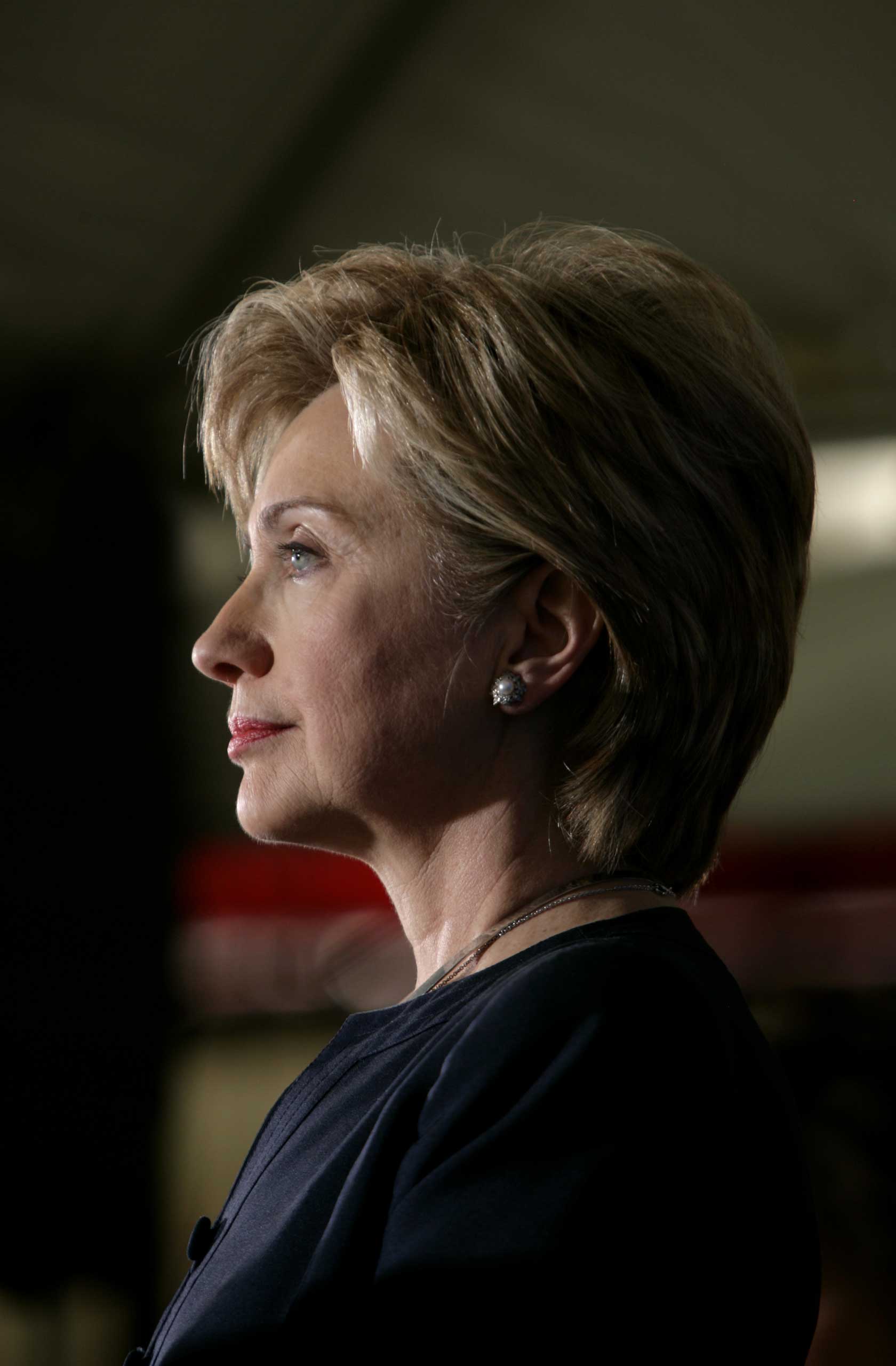
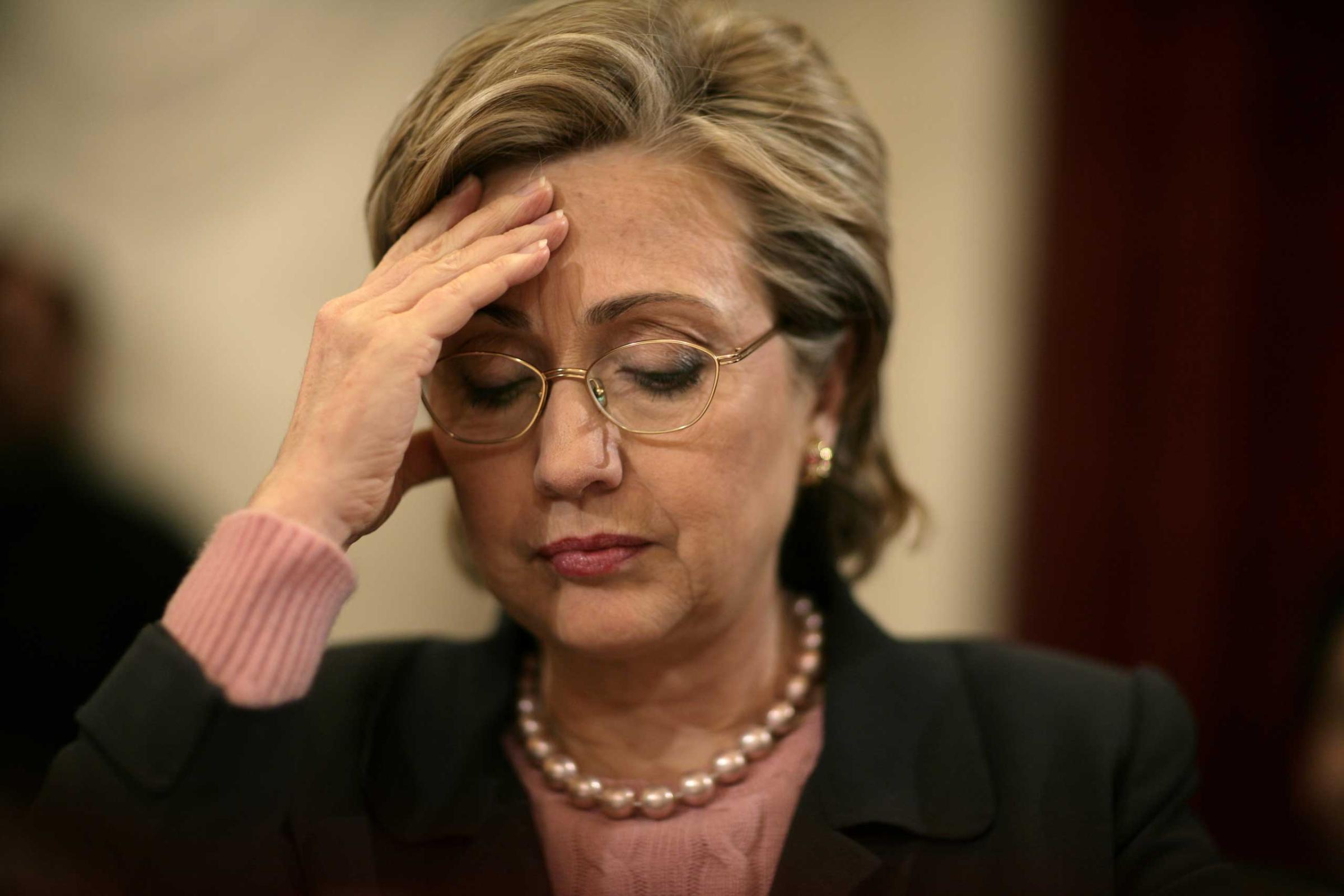
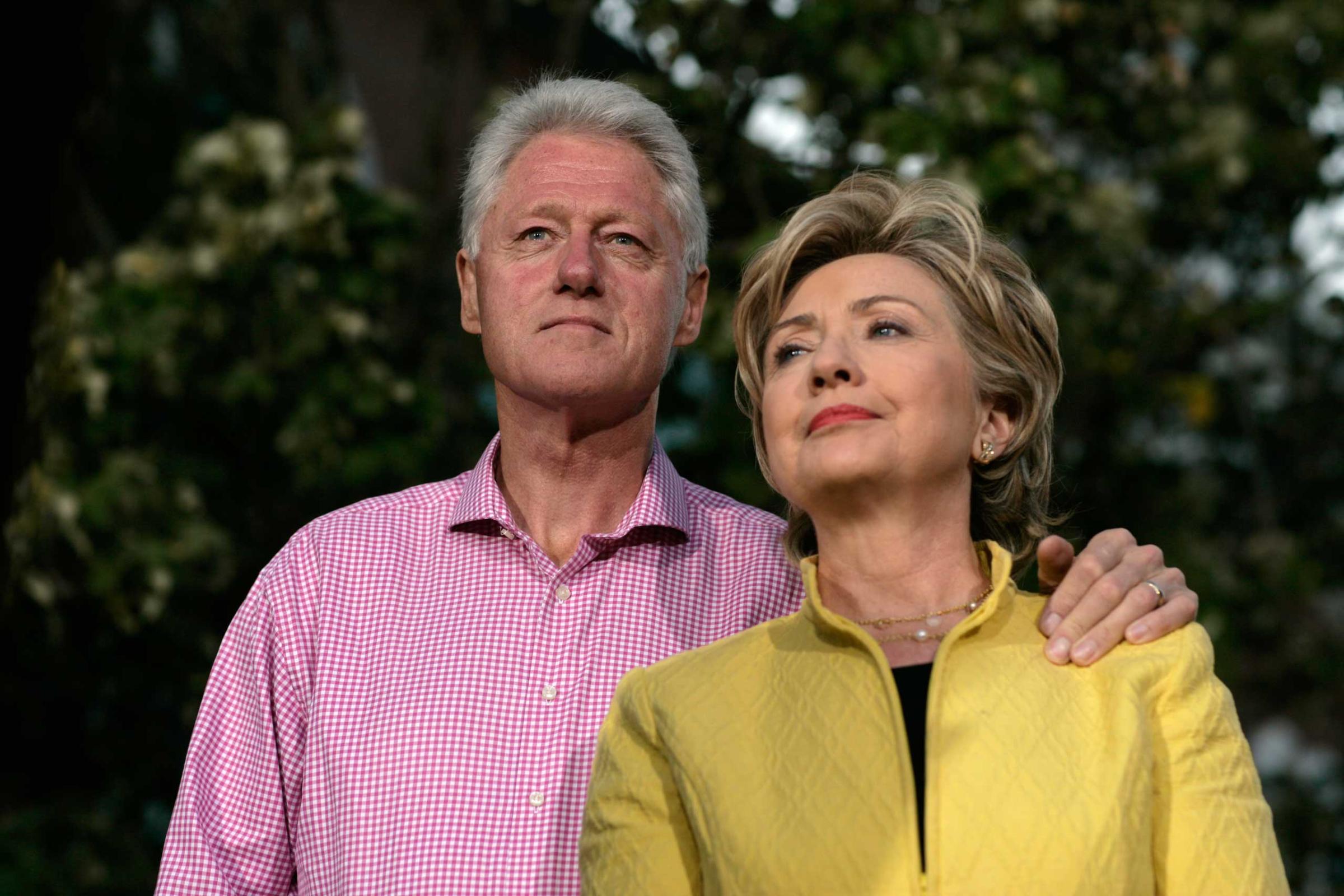

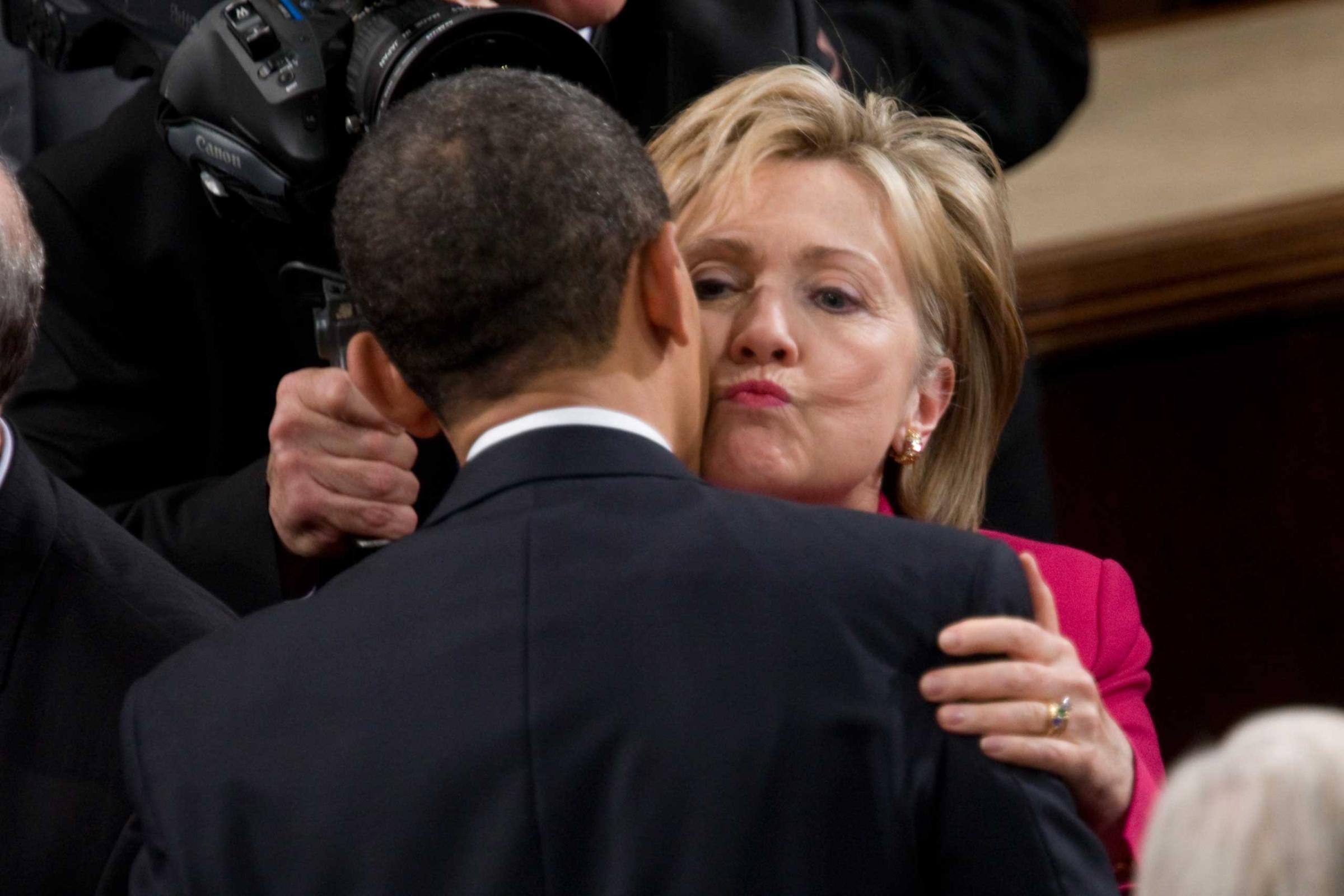

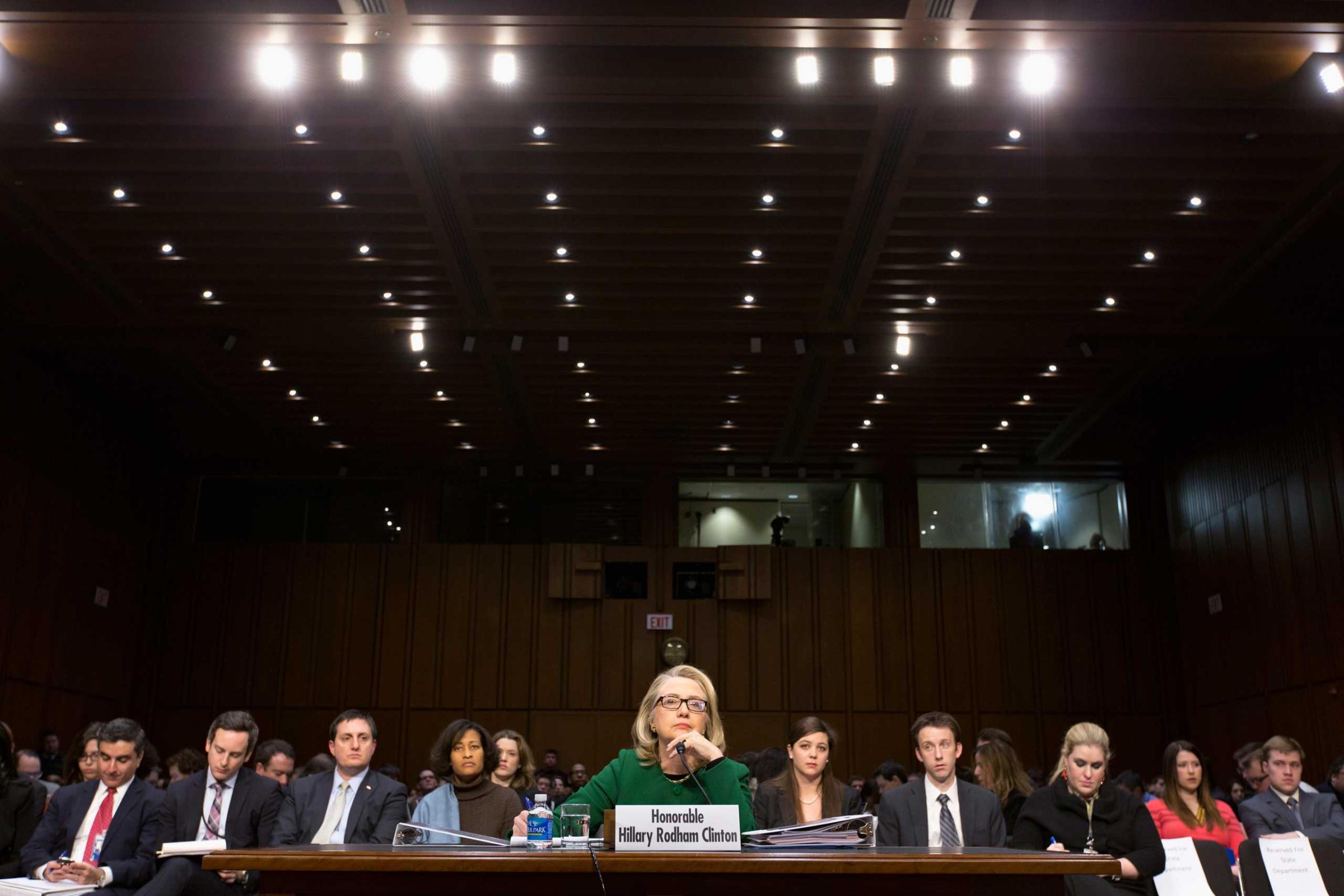
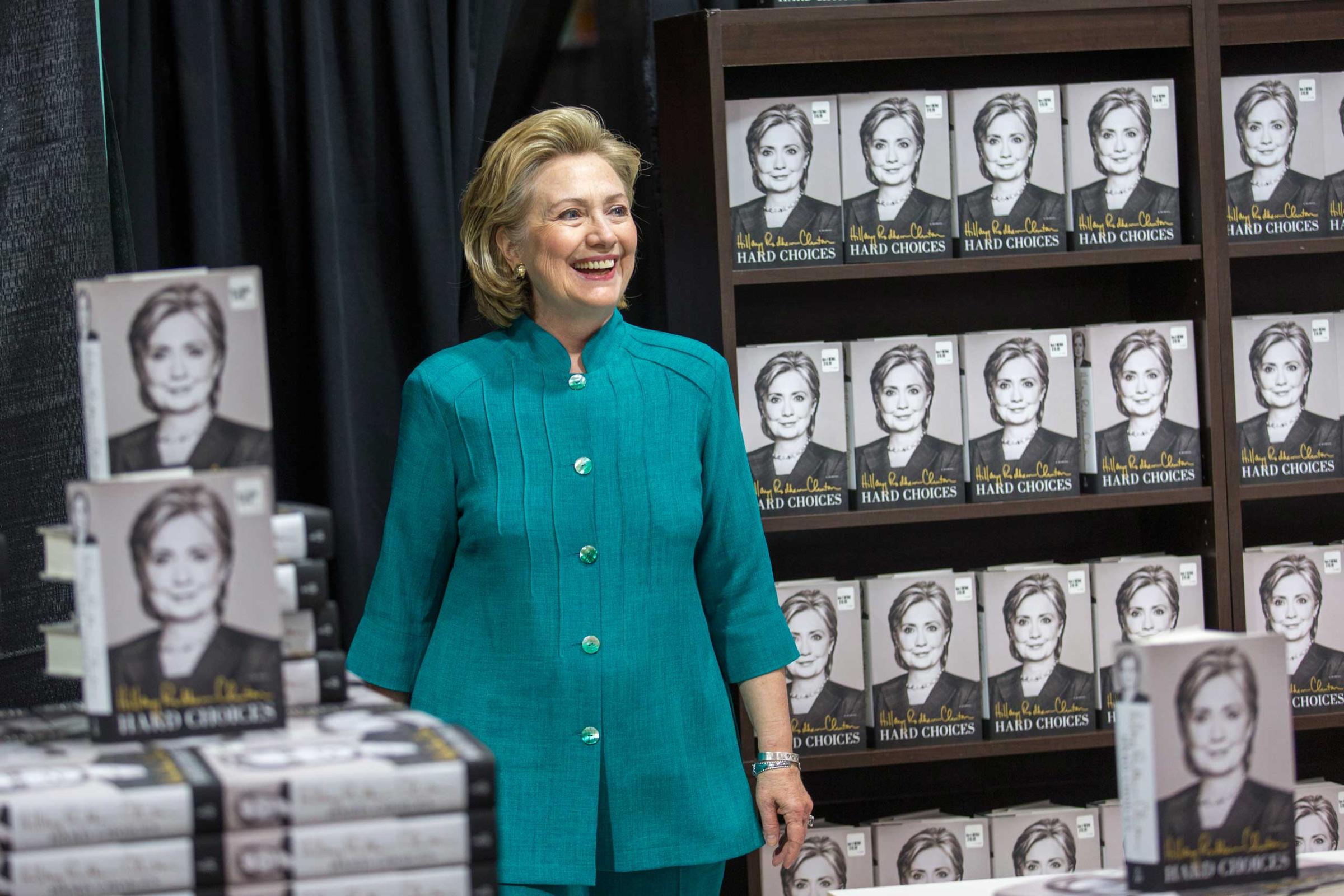
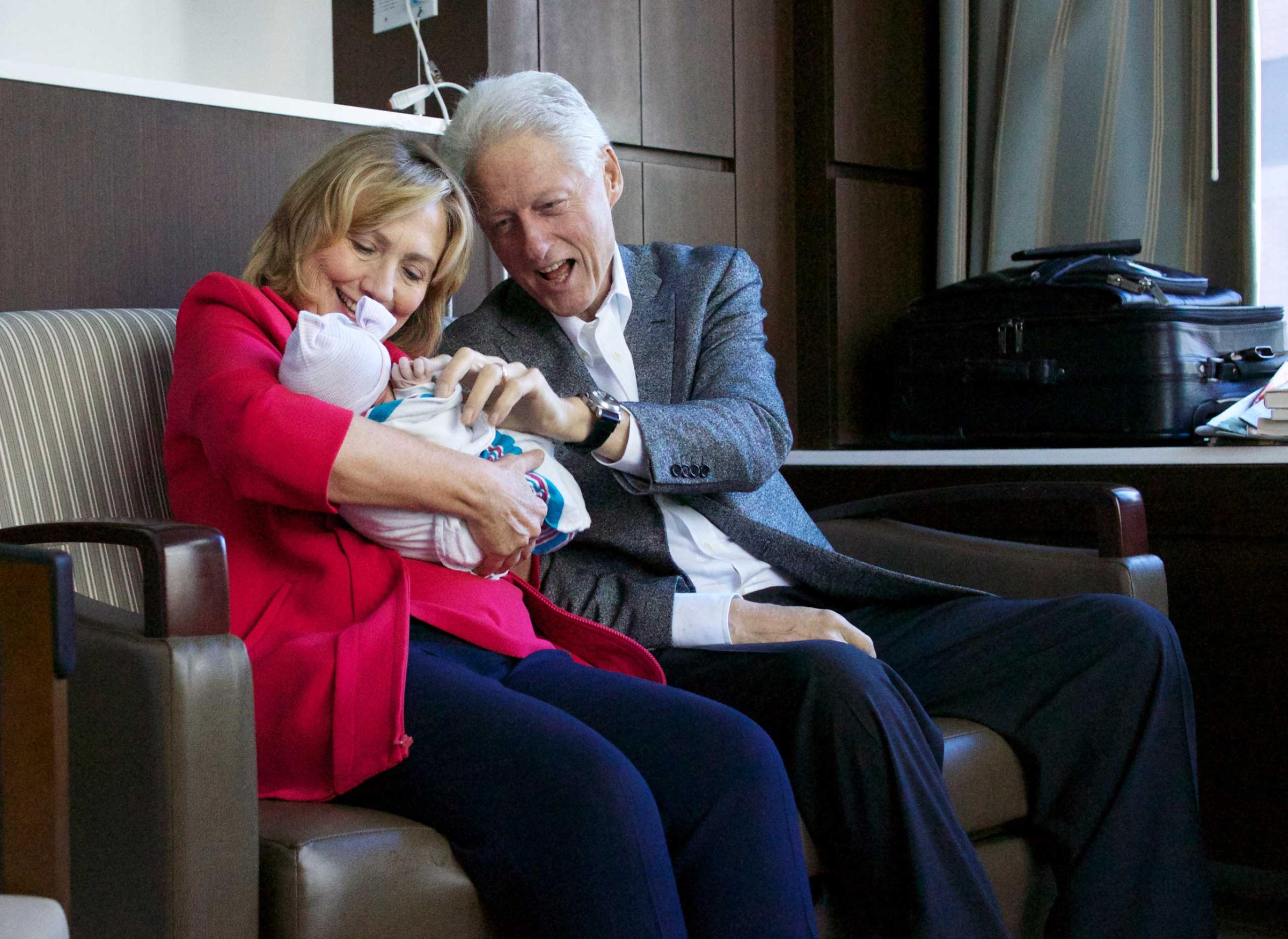
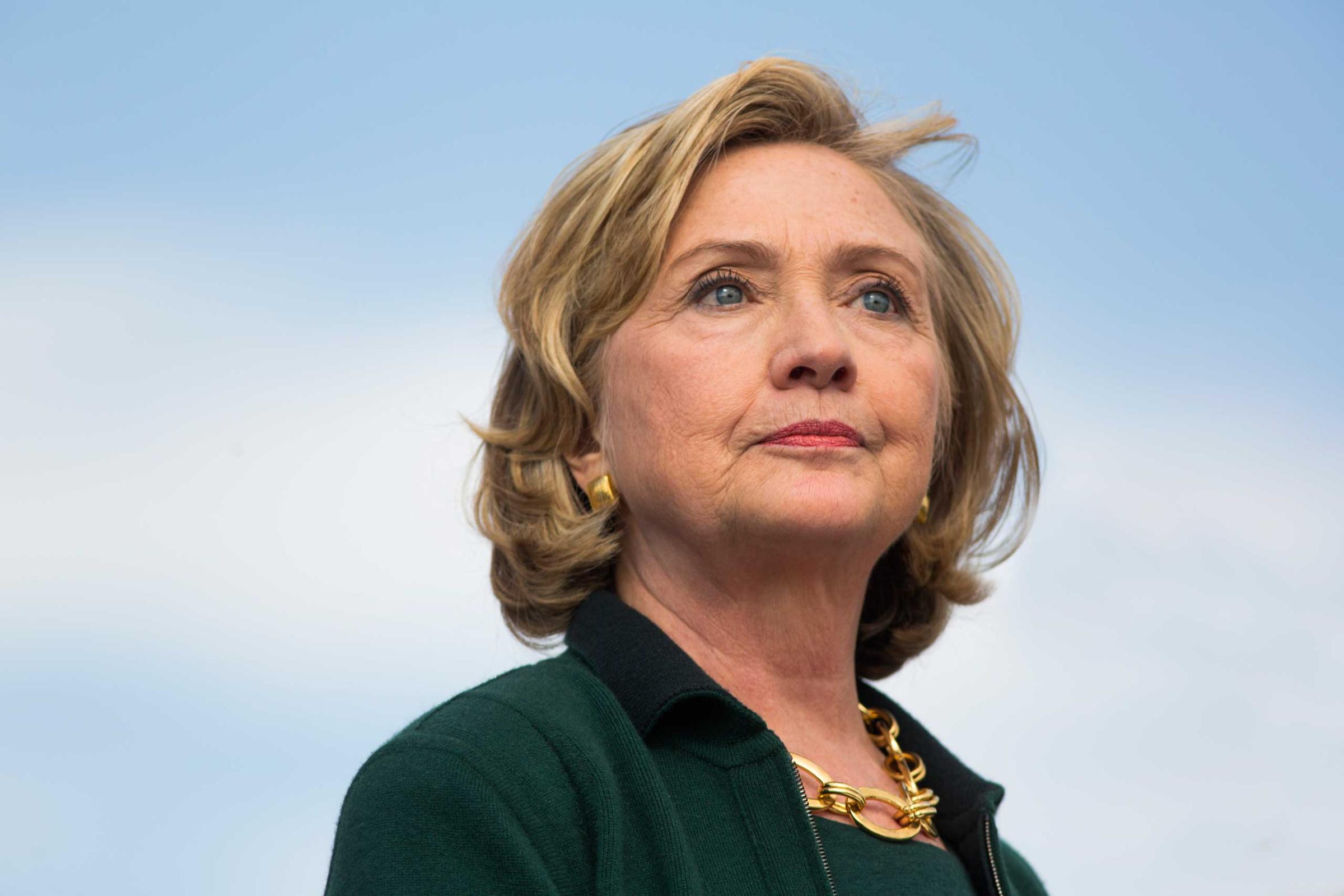
“In the first 100 hours of her campaign, we’ve seen many positive steps in an economic populist direction from Hillary Clinton,” said the Progressive Change Campaign Committee, a supporter of Sen. Warren, in a statement. “We hope these rhetorical steps are soon backed up by big, bold, populist policy specifics.”
Small Iowa groups that will be important in the caucus are taking Clinton seriously as well. Sue Dinsdale, director of the Iowa Citizen Action Network, a progressive political group based in Des Moines, said she appreciated Clinton’s progressive approach.
“It’s a juxtaposition with her past, but we all have a past,” Dinsdale said. “I think she is genuine.”
“I’m glad to see her taking progressive views on things,” she said.
Clinton has yet to announce firm positions on a number of platforms, something she plans to do in the coming months as her campaign gathers momentum. Her likely challengers, including O’Malley and Sen. Bernie Sanders of Vermont, have already articulated their views on several progressive issues.
MORE: Could This Man Beat Hillary Clinton in Iowa?
On Thursday, O’Malley reiterated his platform: reinstate the Glass-Steagall Act, which separated commercial and investment banks; regulate Wall Street; and implement campaign finance reform.
He also aligned himself with labor groups in denouncing the Trans-Pacific Partnership and voiced support for a $15-minimum wage.
“Free markets, by themselves, do not create the generational wealth of great nations,” O’Malley said. “Rational, hard-working, patriotic and caring human beings do.”
Clinton has staked out some positions already. Last year, she said in an interview with NPR she supports gay marriage activism on a “state-by-state” basis; this week, her campaign said that Clinton hopes the Supreme Court will grant same-sex couples a constitutional right to marry — a decision that would play out at the federal level.
And in 2007, Clinton said she opposed allowing undocumented immigrants to own drivers licenses; this week, her campaign announced she supports it.
O’Malley, who touts his support for gay marriage and immigration reform as governor, criticized Clinton for changing her views. He’s also criticized the Trans-Pacific Partnership, a 12-nation trade deal that President Obama and congressional Republicans support but labor unions oppose.
“We must stop entering into bad trade deals—bad trade deals like the Trans-Pacific Partnership—that hurt middle class wages and ship middle class jobs overseas,” he said.
On Friday, the Clinton campaign said in a statement to the New York Times she would not reject a trade deal that would “raise wages and create more good jobs at home.”
More Must-Reads from TIME
- Donald Trump Is TIME's 2024 Person of the Year
- Why We Chose Trump as Person of the Year
- Is Intermittent Fasting Good or Bad for You?
- The 100 Must-Read Books of 2024
- The 20 Best Christmas TV Episodes
- Column: If Optimism Feels Ridiculous Now, Try Hope
- The Future of Climate Action Is Trade Policy
- Merle Bombardieri Is Helping People Make the Baby Decision
Contact us at letters@time.com